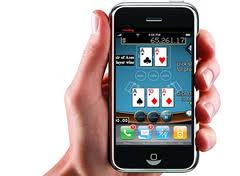In this complete, 5-part poker training guide, we'll be covering the most profitable ways to play poker. All sessions will be based on playing Sit'n'Go tournament poker online, or "SNGs" for short.
Why SNGs?
Throughout the history of poker, good players find consistent bankroll growth more often in SNG tournaments than in any other form of the game. Unlike a cash table, everyone starts with the same amount of chips, and the real money is at the end of tournament, not on the table with every hand played.
SNGs are comparable to large, multi-table tournaments (MTTs) except that the time investment is incredibly smaller. Instead of playing for 8 hours in hopes of finishing in a fat prize pool, the player is only committing themselves to about an hour of playing time, facing a limited number of players. An MTT requires skill, but also an element of luck because there are so many competitors who may hit a lucky draw to oust you. In an SNG, the lower grade competition and expedient finish give skill a much higher priority towards winning.
Playing the Right SNG
Our first poker training session is going to focus on getting into the right SNG tournaments. Key factors are the standard level of competition at on online poker room or network, the value of the prize, and the speed at which you can get your hands on at.
Strength of Opposition
Every online poker site operates on a network. Some poker rooms have their own stand-alone networks, like PokerStars and Full Tilt Poker, while others are just one operator on a much larger network of poker sites, sharing a massive player base among them all. It is a well known fact that stand-alone poker networks have a much tighter level of competition, while conglomerates, like the Merge Gaming Network, tend to have the loosest players.
SNG Value
The value of a Sit'n'Go poker tournament is dependent on the buy-in cost in relation to the number of players participating and the overall prize structure. An 18-seat SNG with a $1+$10 buy-in is going to have an $18 prize pool, while a 9-seater $5+$50 SNG will have a $45 prize pool.
The prize structure is extremely important because it tells you what you can expect to win, and how far you'll need to go to get it. In the case of a 9-seater SNG, the top three finishers generally share in the prize, split up as something like 55%, 30%, 15%. In this example, the payout would be:
1st Place $24.75
2nd Place $13.50
3rd Place $6.75
The more players there are in the mix, the more places that will get paid, of course. It's often anywhere from 15-30% of the field that walks away with a prize. Be sure you know where the bubble is, and what 1st place is worth compared to the last paying position.
Speed of Profit
How fast you earn your profits will have a great effect on the worthiness of your poker game. If you're pulling in $5 every 3 hours, you're not getting very far. But if you're averaging $15+ an hour, that's a substantial amount of money.
To the untrained observer, it would seem a good idea to play more expensive SNG poker tournaments to turn a faster profit. But any successful online poker player will tell you that's not the way it's done.
The best way to increase your profits is to play the easiest levels of competition, generally nothing more than a $5 price tag (minus fee), at simultaneous SNGs or Turbo SNGs.
For the beginner SNG strategist, starting at a single SNG is crucial. But once you get the hang of things, and are cashing consistently in them, it's time to up the ante. Turbo SNGs are the same as a standard SNG, but played incredibly fast. The blinds increase rapidly so that sitting back and biding your time may actually get you busted out due to a hastily dwindling chip stack. Therefore, Turbos require more aggression. If your poker game is not aggressive enough, you're better off playing 2 or more SNGs simultaneously to accelerate your win rate.



